Trump rebukes Kamala comparison to Nazi rally at campaign event
- Update Time : Thursday, October 31, 2024
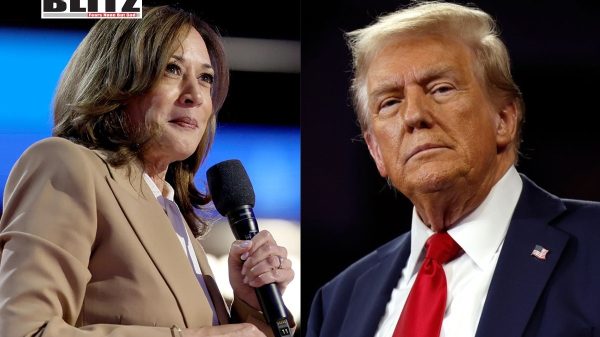
In a fiery exchange ahead of the 2024 US presidential election, Republican candidate Donald Trump strongly rejected recent comparisons made by Vice President Kamala Harris’ campaign, which drew a controversial parallel between a recent Trump event and a Nazi rally held at Madison Square Garden in 1939. Harris’ campaign criticism, amplified by her running mate, Minnesota Governor Tim Walz, has added to the escalating rhetoric as both parties draw sharper contrasts to sway undecided voters.
The controversy began with a rally Trump held last week at New York’s Madison Square Garden, a location with historical significance due to a 1939 event when supporters of Hitler’s Germany gathered there in what became known as the “Nazi rally.” During Trump’s event, comedian Tony Hinchcliffe made a controversial comment referring to Puerto Rico as a “floating island of garbage,” a remark that ignited backlash across political lines. Trump’s team quickly distanced itself from the comedian’s joke, with a senior advisor stressing, “This joke does not reflect the views of President Trump or his campaign.”
However, Harris’ campaign seized the opportunity to liken the event to the notorious 1939 rally, a move that her running mate Walz emphasized in a rally speech in Henderson, Nevada. Walz told the crowd, “There’s a direct parallel to a big rally that happened in the mid-1930s at Madison Square Garden,” insinuating that Trump’s rallies foster a similar divisive spirit.
Trump addressed the comparison while speaking to a large crowd of supporters in Atlanta, Georgia. His response was emphatic: “The newest line from Kamala and her campaign is that everyone who isn’t voting for her is a Nazi. We’re Nazis,” he said, sharply rejecting the insinuation and positioning himself as “the opposite of a Nazi.” Trump further explained that he was raised with the understanding never to trivialize terms like “Nazi” or “Hitler” as slurs. He added that insults and accusations have been part of his political experience but stressed that these labels go too far. “They call me everything from a mad genius looking to take over the world to a very, very stupid person,” Trump said, pointing to what he views as an ongoing effort to undermine his legitimacy and moral standing.
For Trump’s supporters, the Nazi comparison hit a nerve, as it invoked memories of World War II and the sacrifices made by American soldiers. Trump’s running mate, Ohio Senator JD Vance, addressed this sentiment directly during the same Atlanta rally. He reminded the audience, “I imagine that nearly every person in this room has a relative who served in the Second World War. Our families actually went and defeated the Nazis. To call us Nazis is a disgrace.” Vance went further to argue that the values these soldiers fought to defend are not represented by the Harris campaign’s policies, particularly on issues like immigration and social policies. “If you think those brave men were fighting for an open border and sex change surgeries for illegal aliens, the proper term for you is ‘dips**t,’” he stated, using language that drew both laughter and applause from the crowd.
While Trump and his team have often faced accusations of authoritarianism, Harris’ adoption of the “fascist” label reflects a heightened level of direct personal attacks in the campaign’s closing weeks. The vice president recently called Trump a “fascist,” referencing a statement by retired General John Kelly, who previously served as Trump’s chief of staff. Kelly’s opinion, citing Trump’s alleged disregard for democratic norms, provided Harris with what she framed as an authoritative perspective on Trump’s style of leadership. This marks a shift from traditional campaigning, where such labels might be implied rather than explicitly stated.
In response to Harris’ rhetoric, Trump argued that his policies, in fact, align with American traditions and values. “I’m not here to overturn democracy; I’m here to make it work for everyone,” he said, pointing to his proposed economic reforms and his stance on national security as measures aimed at stabilizing the country. Trump’s base, largely loyal and resistant to media portrayal, is unlikely to be swayed by the attacks, and Trump’s words in Atlanta seemed crafted to reinforce this support.
Political analysts have noted that both campaigns’ use of inflammatory rhetoric may reflect a strategy to deepen the partisan divide and galvanize voter turnout. By invoking Nazi Germany and comparing opponents to fascists, both sides risk alienating undecided voters or moderates looking for less divisive approaches. According to several public opinion polls, these undecided voters could be crucial, with the margin between Trump and Harris still narrow in many key battleground states.
On social media, reactions to the incident ranged widely, with some commentators defending Harris and Walz’s statements as fair critiques, while others argued that such language demeans the memory of real victims of Nazi persecution. Jewish advocacy organizations and Holocaust memorial groups have frequently cautioned against invoking Nazi comparisons in political discourse, warning that it risks trivializing the atrocities committed during that period. Public figures from both sides of the aisle have previously faced criticism for invoking such comparisons, with a general consensus that the imagery associated with the Holocaust should be preserved in its historical context.
Amid the escalating language, American voters will soon have the final say when they head to the polls on November 5. While the Nazi comparison has added yet another layer of controversy, the campaigns’ responses reflect a larger trend of hyperbolic statements that have characterized this election cycle. Analysts suggest that voters may ultimately look beyond the rhetoric to the candidates’ stances on pressing issues like the economy, healthcare, and foreign policy.
As Election Day nears, the question remains whether either side will temper its language or continue to rely on highly charged comparisons. For now, Trump’s emphatic declaration that he is “the opposite of a Nazi” underscores his stance that Harris’ comparison is not only an exaggeration but also a distortion of his campaign’s core values. Meanwhile, the Harris campaign is likely to continue leveraging Trump’s public statements and controversies to frame him as a polarizing figure.
With both candidates focused on mobilizing their bases, the 2024 election has become a stark reflection of the country’s deep political and cultural divisions. The lasting impact of this exchange may influence the tone of US politics beyond November, as both parties grapple with how to engage voters without alienating them.




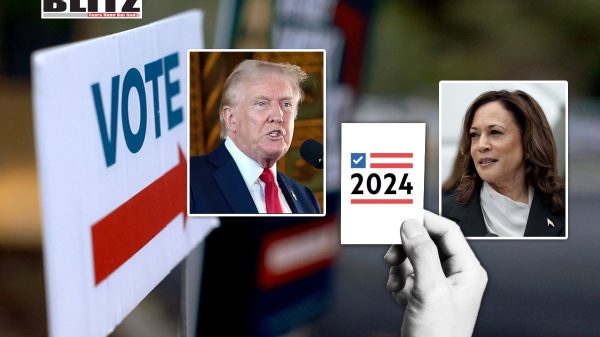

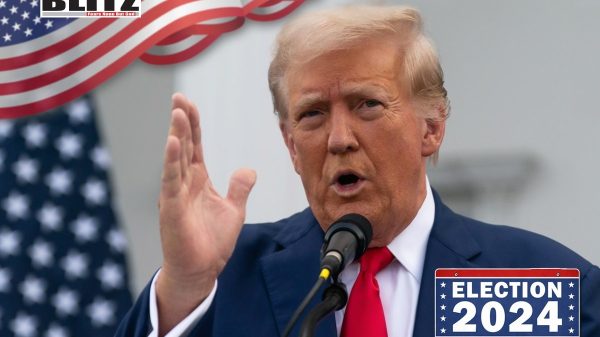

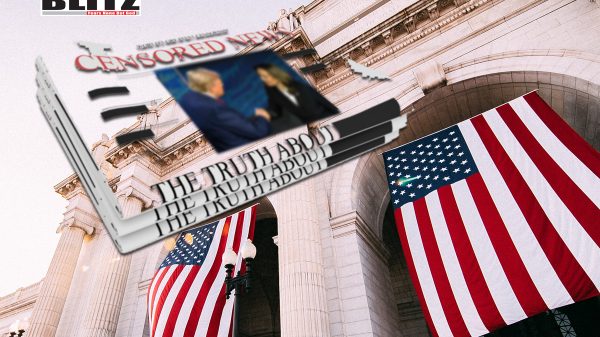
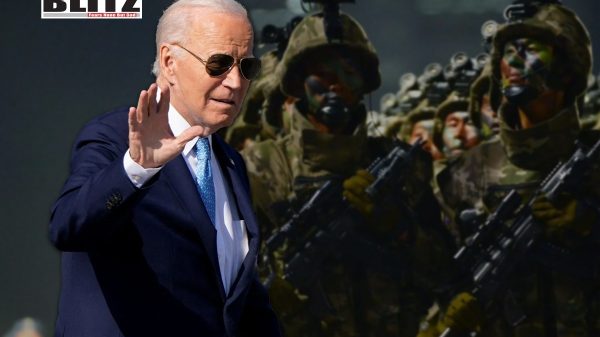



Leave a Reply